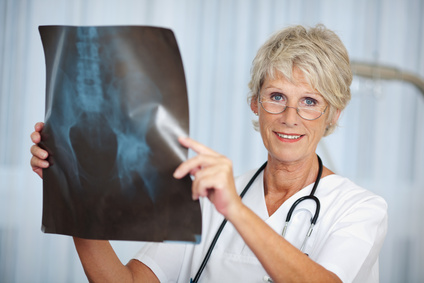Can exercise work as well as drugs for depression?
 Thursday, May 26, 2016 at 2:17PM
Thursday, May 26, 2016 at 2:17PM  A recent NIH blog on antidepressants and weight gain struck me for what it didn't say. “Weight gain is one of the most common side effects of antidepressants,” states the NIH Research Matters blog. Nothing new there. However, if your doctor told you, "take this pill and you’ll likely gain weight" wouldn’t you be more disinclined to start with that medication?
A recent NIH blog on antidepressants and weight gain struck me for what it didn't say. “Weight gain is one of the most common side effects of antidepressants,” states the NIH Research Matters blog. Nothing new there. However, if your doctor told you, "take this pill and you’ll likely gain weight" wouldn’t you be more disinclined to start with that medication?
Not being informed regarding the weight gain side effect of antidepressants is frustrating enough, but medical professionals also often fail to inform patients that exercise performs at least as well as antidepressants in treating (non-major) depression. Furthermore the efficacy of antidepressants is short-lived (averaging just a couple of months for the 50% of patients that respond at all). Meanwhile the vast majority of people stay on those meds indefinitely (wondering why they aren't feeling better) while having gained 10, 20, or even more pounds on the scale.
Part of the problem is that over time medical professionals develop a strong expectation of non-compliance regarding the likelihood of their patients actually making lifestyle changes. Then (partly because medical professionals are always short on time) they get in the habit of skipping straight to a pill. Of course there are also patients that come in specifically to ask for medications and some doctors may feel that if they don't prescribe it the patient will just find another doctor who will. Either way, the patient isn't provided with all the information they need.
So the physical activity option, which costs nothing and only has positive side effects, isn't discussed. That's too bad since most people will agree that they feel better both physically and emotionally when they exercise.
Here's the summary of a comprehensive review study on exercise and depression:
"... exercise appears to be an effective treatment for depression, improving depressive symptoms to a comparable extent as pharmacotherapy and psychotherapy. Observational studies suggest that active people are less likely to be depressed, and interventional studies suggest that exercise is beneficial in reducing depression. It appears that even modest levels of exercise are associated with improvements in depression, and while most studies to date have focused on aerobic exercise, several studies also have found evidence that resistance training also may be effective. While the optimal “dose” of exercise is unknown, clearly any exercise is better than no exercise. Getting patients to initiate exercise ---and sustain it – is critical."(1)
You can avoid antidepressants, and their associated weight-gain, by developing an activity plan that fits your life.
The good news is that there is no right or wrong way to do this. Personally I’m a huge fan of walking, no special equipment, or membership, necessary and you can do it anywhere. Outside activities also have the added benefit of full spectrum light, nature, and fresh air.
The NIH National Institute of Diabetes and Digestive and Kidney Diseases has a good check-list for getting started with regular walking, see: How do I start?
The bottom line is that while we wish there were, there simply are no magic pills, and physical activity remains the best prescription in the medicine chest for much of what ails us.
All the best!
-Dorene
References:
- Is Exercise a viable treatment for depression? ACSM Health Fit J 2012;16(4):14-21.
- Pharmacological management of obesity: an Endocrine Society clinical practice guideline.
J Clin Endocrinol Metab 2015 Feb;100(2):342-62.





